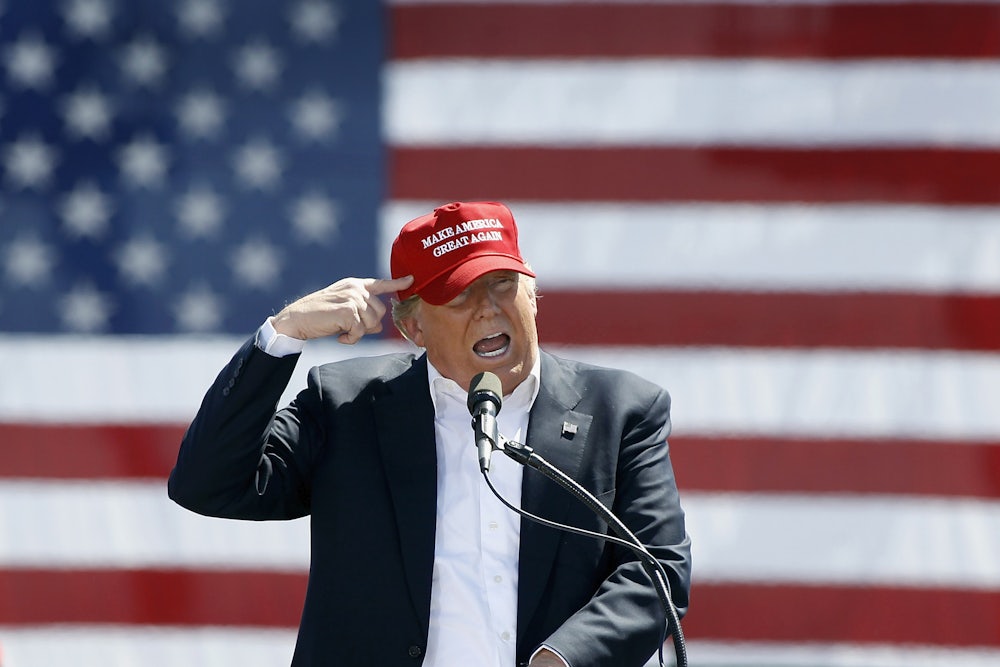In a much discussed Washington Post op-ed, Robert Kagan makes the case that Trump is a typical fascist leader, a strongman who riles up the mob and preys on their fears and hatred. Yet the Trump that Kagan describes is a curiously ahistorical menace, a monster born of an immaculate conception. Kagan draws analogies between Trump and all sorts of foreign tyrants, including Mussolini and Hitler, but deliberately ignores how Trumpism is an outgrowth of a racism and xenophobia that is all too American. The Trump phenomenon, we’re told, “has nothing to do with the Republican Party, either, except in its historic role as incubator of this singular threat to our democracy.”
Kagan has good reason to want to gloss over the historical roots of Trumpism. Although he will vote for Hillary Clinton this year, Kagan is a neoconservative whose hawkish foreign policy ideas were immensely influential during the presidency of George W. Bush. If we wanted to boil down Trumpism to two historical precedents, they would be the Southern Strategy (which made the Republican Party amenable to Trump’s racism) and Bush’s war on terror (which primed the party to respond to fear-mongering, threat inflation, and bluster). As Matt Duss argued in The Nation, the “inconvenient truth is that Trump has simply refined to its essence the style of discourse that the neocons helped develop.” With his promise of a unilateral foreign policy that would include re-occupying Iraq and bringing back torture, Trump is trying to take Bushism to the next level.
No wonder Dick Cheney supports Trump. And no surprise that Robert Kagan, who was so instrumental in crafting these policies, ignores the connection between his old ideas and Trumpism.
